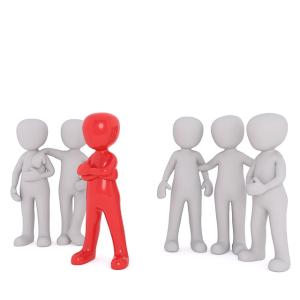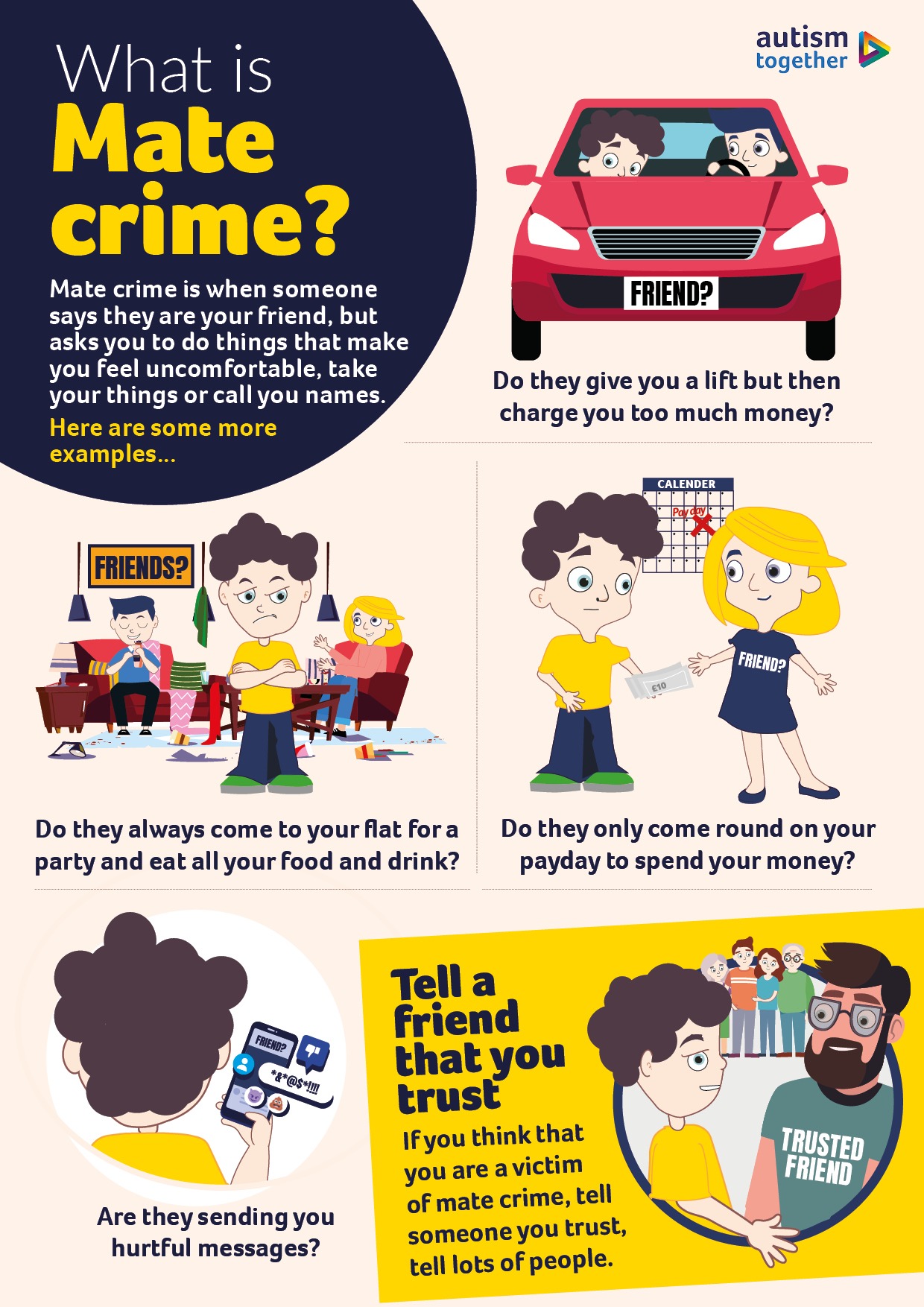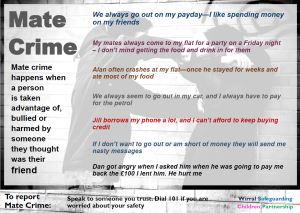Hate Crime and Mate Crime
What is Hateful Content?
Hateful content is where others are inciting hatred towards an individual or a group. If you experience any hateful content it will probably make you feel anxious, scared and angry. It is very important that you tell someone – your parent or carer, or another trusted adult such as a teacher, youth worker or social worker.
You might also witness hateful content being aimed towards another young person. If that happens it is still very important that you tell someone.
s
s
What is Hate Crime?
Hate crime is the general term used to describe any criminal offence that is motivated by hostility or prejudice based upon a person’s protected characteristics- these are:
- race
- religion
- sexual orientation
- transgender identity
- disability
Even if a victim does not have any of these protected characteristics, but they receive abuse because others think they have one or more of these characteristics, then it is still a crime and should be reported to the police.
Reporting:
Merseyside Police have information about how to report hate crimes here:
https://www.merseyside.police.uk/advice/advice-and-information/hco/hate-crime/how-to-report-hate-crime/
The police can be called on 101, or 999 in an emergency.
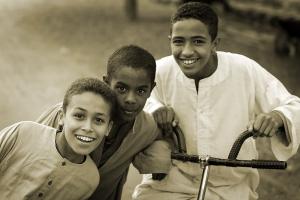
What is Mate Crime?
Mate crime happens when someone pretends to be your friend and then uses you instead of being a good friend. A ‘mate’ may be a friend, family member, supporter, paid staff or another person with a disability
Mate crime is when someone says they are your friend, but they do things that take advantage of you, like ask you for money a lot. A real friend does not need to be bought, and someone who takes your money, asks you to pay for lots of things, or makes you feel uncomfortable is not a true friend.
If someone who says they are your friend hurts you, steals from you or makes you do something you don’t want to do, you should tell to someone you trust right away.
- Hate crime is when you are victimised by strangers just because you have one or more protected characteristics such as a disability.
- Mate Crime is done by someone you know.
Poster from Autism Together
Spotting the Signs
For a lot of hate crimes, people are victimised because someone thinks they are different. Whilst there are five protected chracteristics, it is common for crimes to be targeted at people with other differences, for example the way they dress.
Signs of victimisation can include:
- unexplained absence from school
- change in dress or behaviour
- depression or anxiety
- becoming withdrawn
- self-harm
- substance misuse
Hate Crime Awareness video
Is this person my friend?
A friend is a companion you trust and have fun with. But if your friend makes you feel anxious or scared, takes your money or possessions or makes you do things you don’t want to, that’s not right. We call that a mate crime.
Remember that most of your friends are good friends but that if you are worried about a friendship you have a right to be believed and to be taken seriously when you report incidents.
Hate Crime and Mate Crime may include:
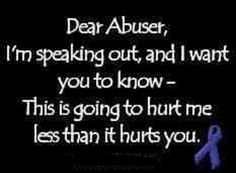
- Verbal or physical abuse
- Intimidation or threats
- Manipulation
- Bullying
- Online harassment
- Theft
How friends and supporters can spot mate crimes
Mate crime is often hidden but these signs may indicate something is wrong:
- Someone with autism suddenly appears to have a new friend or a much larger friendship group and a more active social life. These new people seem to have an undue influence. They may be visiting the vulnerable person at home for social gatherings.
- The person with autism comments that his friends will be disappointed if a certain activity doesn’t take place. They may express worry that they’ll lose their friends. They may appear uneasy about the friendship.
- The vulnerable person may be spending his own money to pay for concert tickets for others or taxi fares or rounds of drinks. They may be buying gifts for other people or giving away precious possessions. They may suddenly change their will.
- The person may unexpectedly change their routine, behaviour or appearance. They may have unexplained injuries, look scruffy or dirty or show signs of mental ill health.
Useful Links
Autism Together – Mate Crime page
Government information page about Hate Crime and how to report it.
Merseyside Police Hate Crime information and reporting page
Merseyside Police and Crime Commissioner Hate Crime page
National Police Hate Crime website
NSPCC Calm Zone page for children who are feeling anxious, upset or scared
NSPCC Distressing online content help page
Education Against Hate Classroom Resources
Anthony Walker Foundation | Racism & Hate Crime Charity
Daisy Inclusive UK (daisyuk.com)
Reporting a hate crime or hate incident to the police – Citizens Advice / Welcome to Citizens Advice Wirral – Citizens Advice Wirral

